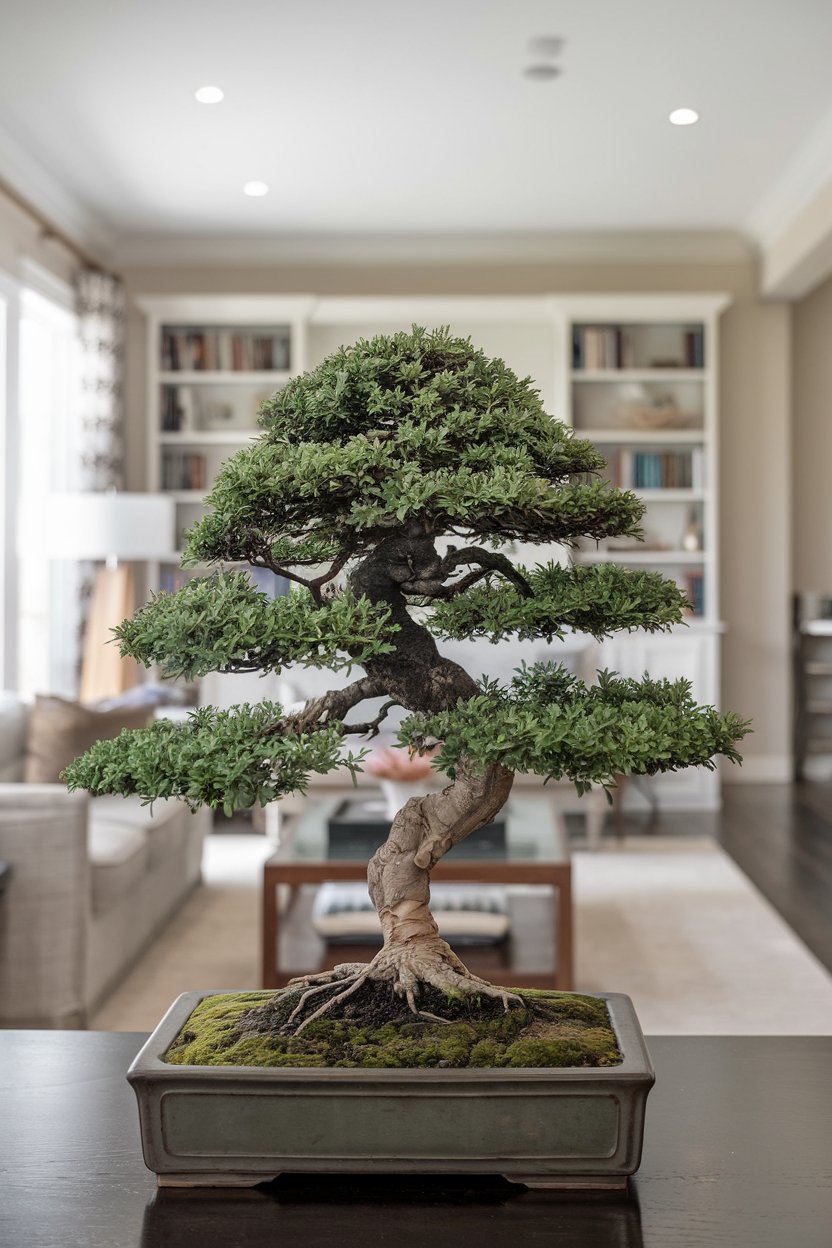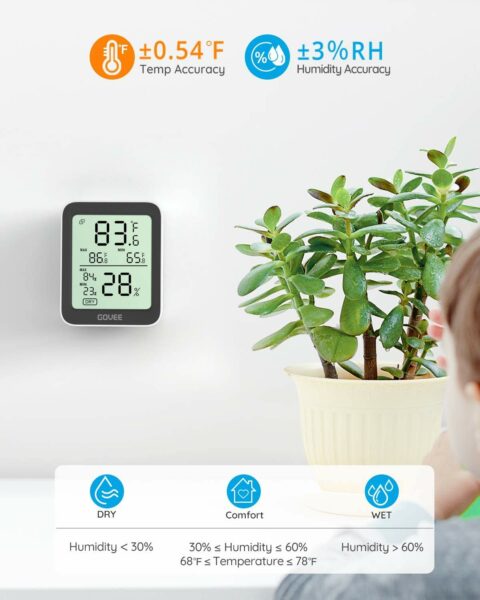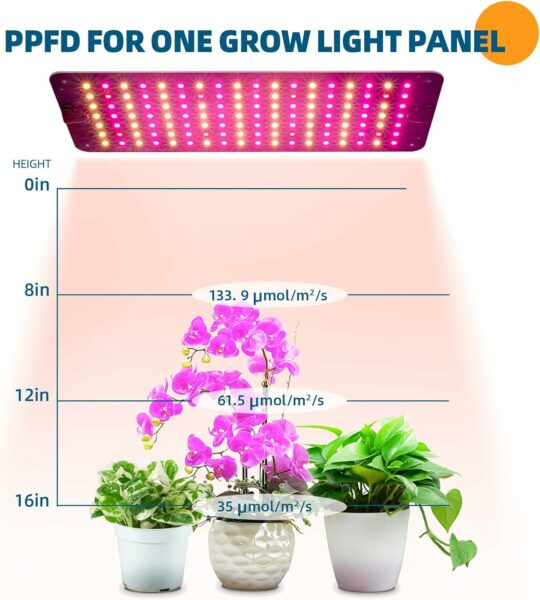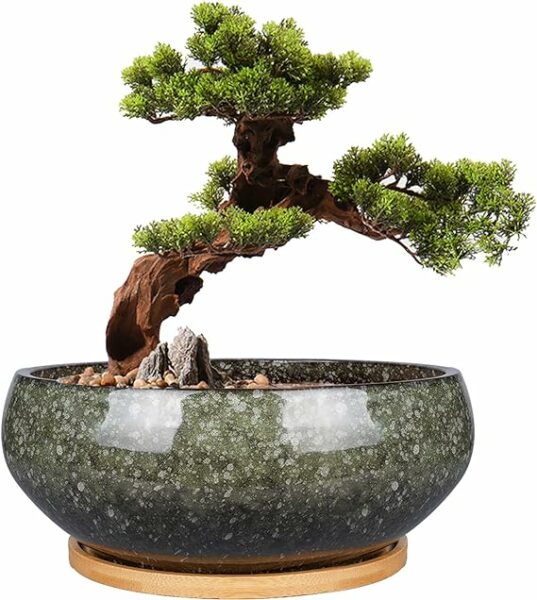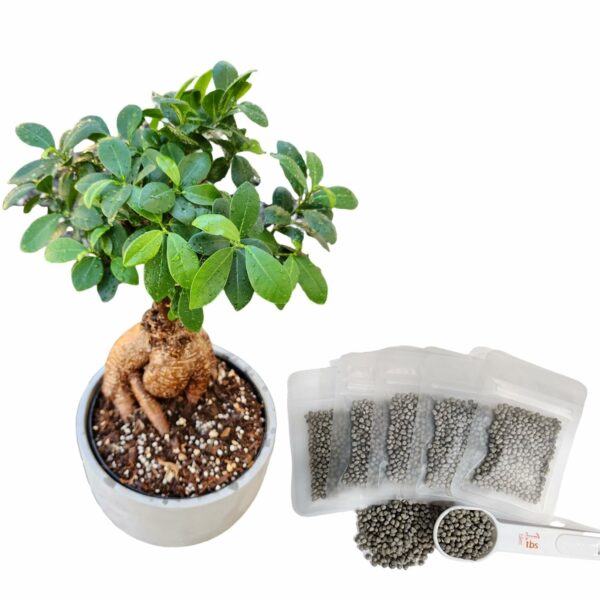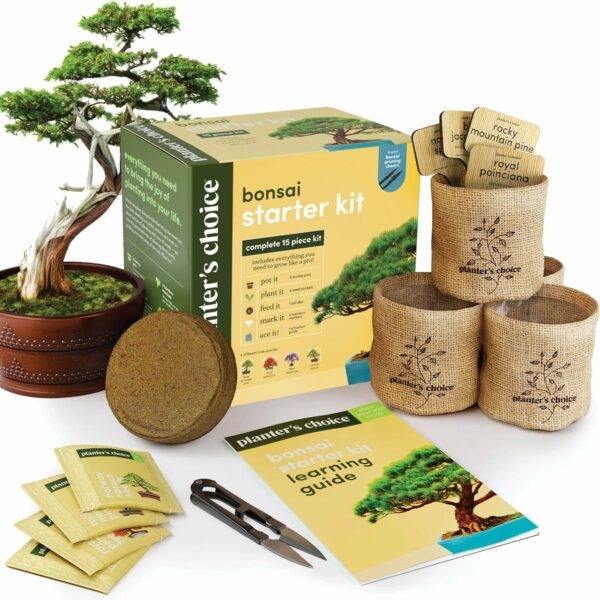Bonsai trees are often celebrated for their stunning aesthetics and unique art form, but did you know they also offer impressive air-purifying qualities? These miniature trees are more than just decorative pieces; they can enhance your indoor environment and promote healthier living. Let’s dive into how bonsai plants purify the air and why you should consider adding one to your home.
Understanding Air Purification
Before we explore the benefits of bonsai plants, it’s essential to understand how indoor plants improve air quality. Many houseplants are known for their ability to absorb carbon dioxide and release oxygen during photosynthesis. Furthermore, specific species can filter out harmful toxins and pollutants, such as formaldehyde, benzene, and trichloroethylene, often found in household products and materials.
The Bonsai Advantage
1. Air Quality Improvement
Bonsai trees, like other houseplants, can help improve indoor air quality. Though they may be small, their leaves play a crucial role in the air purification process. For example, popular bonsai species such as the Ficus, Juniper, and Chinese Elm are known for their ability to absorb pollutants and release oxygen, contributing to a healthier living space.
2. Humidity Regulation
Bonsai plants also contribute to maintaining humidity levels in your home. Through a process called transpiration, they release moisture into the air, which can help counteract the dry conditions often found indoors, especially during winter months. This added humidity can alleviate respiratory issues and promote overall well-being.
3. Stress Reduction
While not a direct air purifying property, the presence of bonsai plants can significantly reduce stress and improve mental health. Studies have shown that being around greenery can lower anxiety levels and boost mood. The calming effect of nurturing a bonsai—whether through pruning, watering, or simply enjoying its beauty—can enhance your indoor environment, making it feel more inviting and serene.
4. Aesthetic Appeal
Bonsai plants bring natural beauty into your space, transforming any room into a tranquil oasis. Their intricate forms and lush foliage can serve as a visual reminder to take a break and breathe, encouraging mindfulness and relaxation.
Choosing the Right Bonsai for Air Purification
Scientific studies show that these plants can absorb pollutants like formaldehyde, benzene, and trichloroethylene, contributing to improved indoor air quality. Their leaves enhance photosynthesis, converting carbon dioxide into oxygen, which is beneficial for respiratory health. Additionally, these bonsai species have demonstrated resilience in indoor environments, making them popular for enhancing both aesthetics and air quality. Collectively, they contribute to a healthier living space, promoting well-being through improved air purification. If you’re interested in reaping the air-purifying benefits of bonsai plants, consider the following popular species known for their effectiveness:
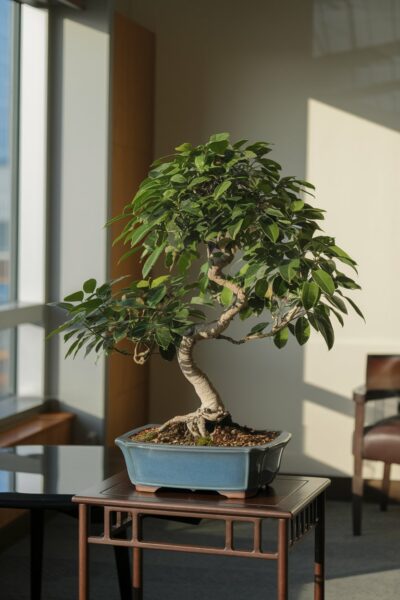
Ficus Bonsai
Scientific Name: Ficus Retusa
Family: Mulberry
Origin: Native to Southeast Asia, particularly in Malaysia and Indonesia
Humidity: Prefers high humidity levels (around 50-70%)
Temperature: Thrives in warm conditions (65°F to 80°F or 18°C to 27°C) and is sensitive to cold.
Frequency: Water when the top inch of soil is dry, typically every 1-2 weeks.
Amount: Water thoroughly to promote healthy root growth, allowing excess water to drain out.
Typical Lifespan: 20-100 years
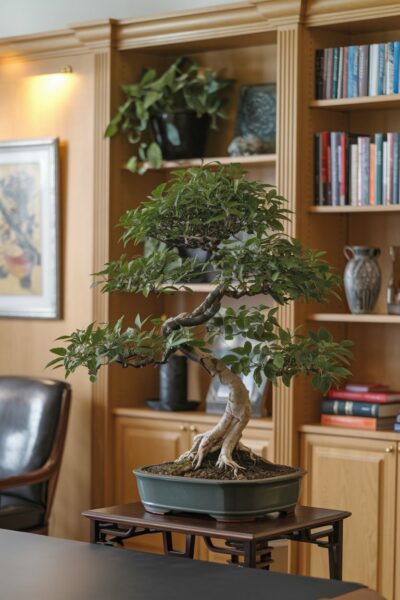
Chinese Elm
Scientific Name: Ulmus parvifolia
Family: Rosales
Origin: Hails in temperate zones of China, Korea and Japan
Humidity: Enjoys moderate humidity (around 40-60%)
Temperature: Best in temperatures from 60°F to 75°F (15°C to 24°C), can tolerate some cold.
Frequency: Water when the top inch of soil is dry, generally every 1-2 weeks.
Amount: Ensure even moisture; water until it drains from the pot’s bottom.
Typical Lifespan: 50-100 years
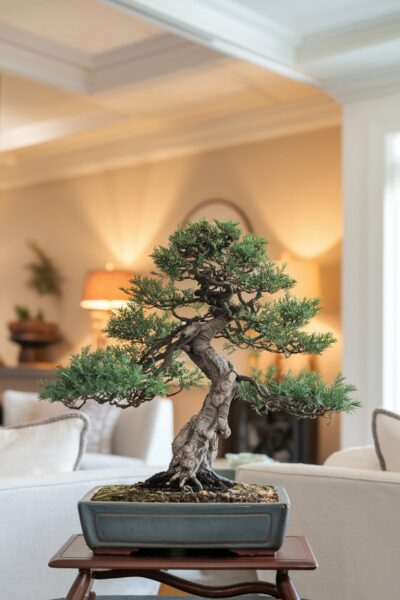
Juniper Bonsai
Scientific Name: Juniperus
Family: Cypress
Origin: Thriving in various climates in North America, Europe, and Asia
Humidity: Tolerates a wide range, but prefers lower humidity levels (around 40-60%)
Temperature: Optimal growth occurs in cooler temperatures (40°F to 70°F or 4°C to 21°C), with some varieties being frost-tolerant.
Frequency: Water when the soil feels dry to the touch, usually every 1-2 weeks; may need more frequent watering in hot weather.
Amount: Water thoroughly, allowing excess to drain, but avoid overwatering as they prefer slightly drier conditions.
Typical Lifespan: 30-100 years
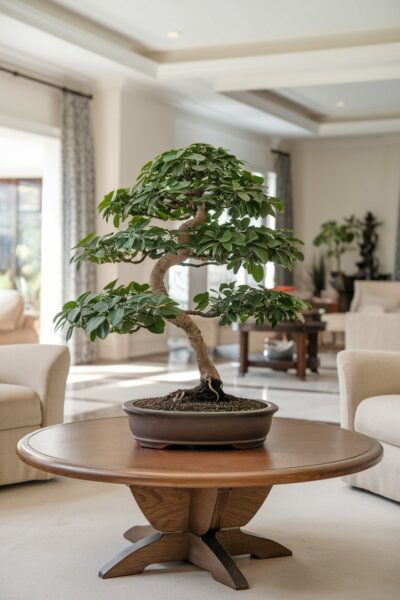
Umbrella Bonsai
Scientific Name: Schefflera Arboricola
Family: Araliaceae
Origin: Tropical regions of Southeast Asia and Australia
Humidity: Prefers moderate to high humidity (around 50-70%)
Temperature: Thrives in temperatures between 60°F and 75°F (15°C to 24°C), avoiding frost.
Watering Frequency: Water when the top inch of soil feels dry, typically every 1-2 weeks.
Amount: Water thoroughly until it drains from the bottom, ensuring the soil is evenly moist.
Typical Lifespan: 10-20 years
Care Tips for Healthy Bonsai
To maximize the air-purifying benefits of your bonsai, proper care is essential:
Light: Bonsai plants thrive in bright, indirect sunlight. Ensure they receive adequate light for several hours each day, as insufficient light can hinder their growth and vitality.
Watering: Water your bonsai only when the topsoil feels slightly dry, as overwatering can lead to root rot. It’s crucial to find a balance, ensuring the tree remains hydrated without becoming waterlogged.
Humidity: Bonsai trees benefit from higher humidity levels, especially in dry indoor environments. You can mist the leaves regularly or place a humidity tray filled with water and pebbles underneath the pot to maintain moisture.
Pruning: Regular pruning is essential for shaping your bonsai and promoting healthy growth. By trimming both the leaves and branches, you encourage a fuller, denser appearance while preventing the plant from becoming leggy.
Incorporating a bonsai plant into your home is a wonderful way to improve air quality while adding a touch of elegance to your space. With their air-purifying properties, humidity regulation, and stress-reducing effects, these tiny trees can make a significant impact on your indoor environment. So why not bring a little greenery into your life? Your lungs—and your mental well-being—will thank you!
